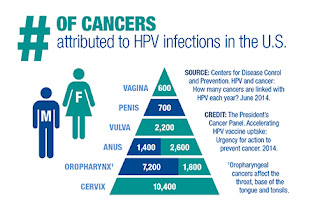Time to Wake up to the Importance of Sleep
Spring Semester is here!
Time to chug coffee, study non-stop, and take all-nighters, right?! No, not
right. There is something that will help you get through this semester more
than forcing yourself to study all night. Have you guessed it by the title? If
you haven’t, it’s sleep! Sleep helps you in various ways, and after countless
all-nighters it’s about time to make your sleep a priority.
Why Sleep is Important!
- Sleep improves your ability to learn by helping you pay attention, make decisions, and be creative.
- Sleep improves your emotional well-being.
- Sleep helps maintain a balance of hormones.
o
Cool fact: Ghrelin is
the hormone that makes you feel hungry and Leptin is the hormone that makes you
feel full. When you don’t get enough sleep, your Ghrelin goes up and Leptin
goes down meaning you feel hungrier when not well-rested.
As you can see, sleep is
very significant, but this does not mean you should turn off all alarms and
sleep through your 8AM classes. A healthy amount of sleep for adults is between
7-9 hours a night. Let it also be known that it depends on the individual. It
can be considered appropriate for some young adults to need as little as 6
hours or as much as 11 hours of sleep a night.
How to Get Better Sleep
· Track Sleep Hours: The first thing you need to do is track how many
hours of sleep you currently get, and how you currently feel with that amount
of sleep. If you feel tired throughout the day that could be a sign that your
body is not getting enough sleep. Listen to your body and track your hours to
find what feels and works the best for you.
- IPhone Hack: If you go to your “Clock” app, there is a “Bedtime” option. If you go there you can decide when to wake up each day, and it will allow you to choose the hours of sleep you want. It will send you reminders when it’s time for bed and when it’s time to wake up.
· Keep it Consistent: The best way to maintain a healthy sleep
schedule is to keep it consistent. Sleeping is a rhythm, so try to go with the
motions and stick to the sleep schedule that feels best for you. (Using the
IPhone hack above could also help here!)
· Decrease Caffeine
Intake:
Coming from the Ex-queen
of Diet Coke, keep track of your caffeine intake and try not to rely on it too
late at night. Caffeinated beverages make falling asleep a more difficult
process when it should be an easy task towards the end of the day. When in
doubt, stick to water, bedtime tea, or warm milk.
o
When to Stop:
According to the National Sleep foundation, caffeine lasts for 5-6 hours in the
body before wearing off. So, if you need to be in bed by 10PM, be sure to cut
off caffeine between 4PM-5PM that day.
· Don’t Hit Snooze: It can make waking up even more difficult
because it acts as a false alarm to the body, thus making the body get ready to
sleep more. This can confuse the body on when it is supposed to wake up. With
classes and exams coming up there is no time to oversleep.
· Put Away the Phone: Before you go to sleep, don’t be scrolling down
this amazing blog! I know it is really fun, but the light is tricking your
brain. If you must be on your phone, switch the lighting to "Night Shift.”
This removes the blue light that makes your phone screen viewable in the sun,
so that Melatonin (the hormone that tells your body when it is time to sleep)
production can continue.
So, let’s start this semester off
right with enough sleep. Stay Healthy, Go Beach!
By Jessica Elderkin


Comments
Post a Comment